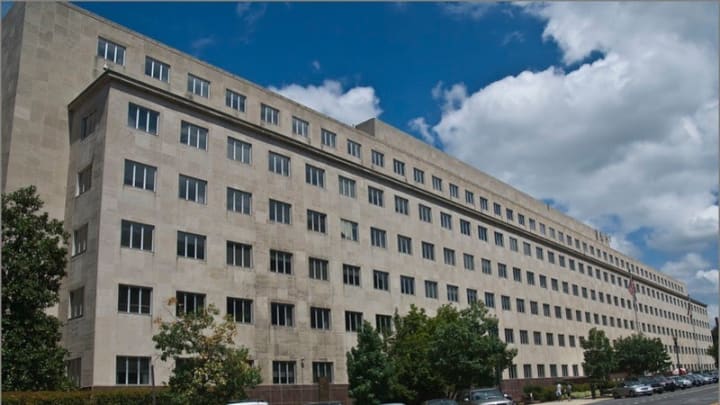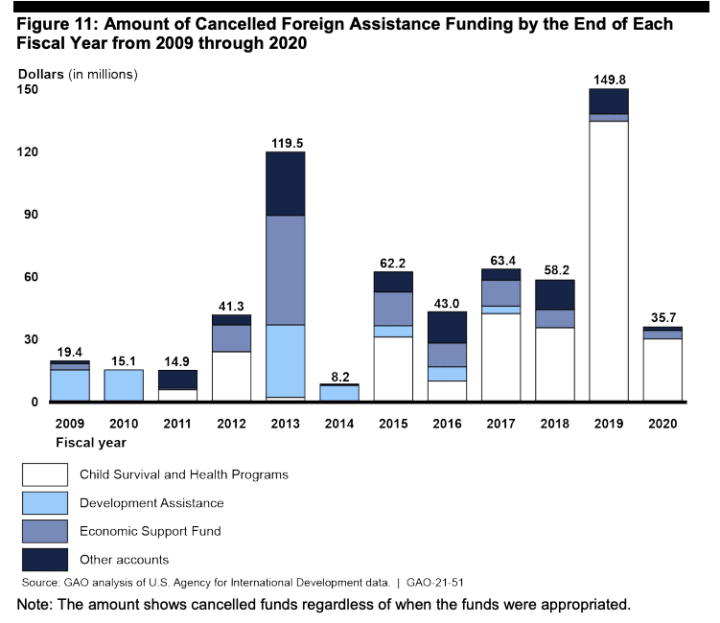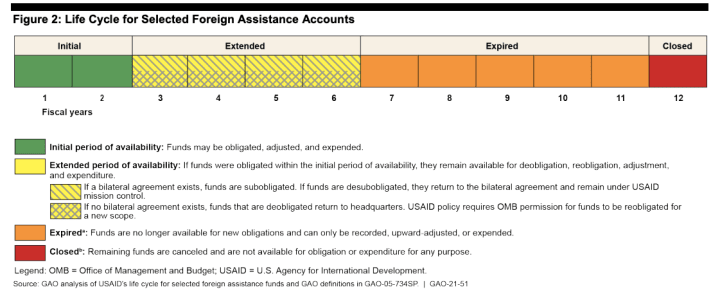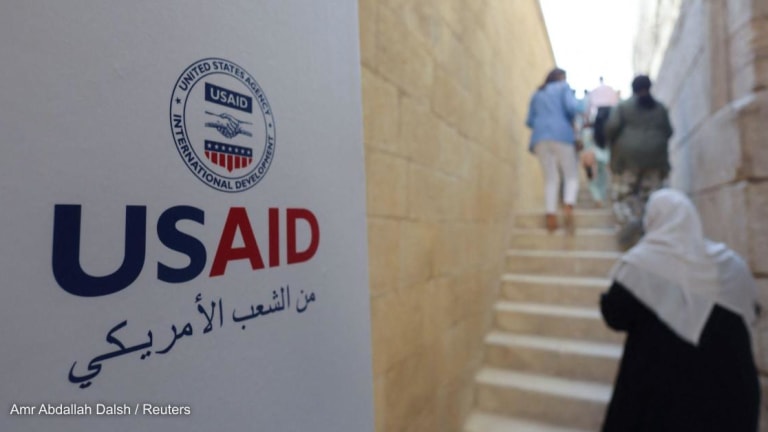
BURLINGTON, Vt. — A new report from the U.S. Government Accountability Office points to roughly $20 billion in unspent funding accumulated in the U.S. Agency for International Development’s accounts. An agency spokesperson described the watchdog’s analysis as “misleading and, in some cases, inaccurate.”
Almost $20 billion of USAID’s $185 billion in foreign assistance funding from 2009 to 2019 remained unspent — or “unliquidated” — as of March 31, according to the GAO report, released on Wednesday.
However, the “vast majority” of these funds are recently appropriated from fiscal years 2017 to 2019, and they have been obligated in accordance with national-level bilateral agreements at USAID’s country missions, USAID acting spokesperson Pooja Jhunjhunwala wrote to Devex by email.
USAID turns to scenario planning to prepare for future global crises
In response to the disruption caused by COVID-19, USAID mobilized 75 of its own experts to create 31 different best- to worst-case scenarios. The agency hopes these forecasting tools will leave it better prepared for future, unpredictable shocks.
Most of this funding will be spent on ongoing programs that USAID and its partners are currently implementing, she added.
The watchdog also found that approximately $630 million in funding from fiscal years 2009-2020 went unspent and was therefore canceled, including more than $300 million in the past four years.
The idea that hundreds of millions of dollars in funding would go unspent and be canceled might raise alarm in light of the intense budget battles that have characterized USAID’s operating environment during the past four years.
Jhunjhunwala wrote that the $300 million canceled from fiscal years 2017 to 2020, “represents less than one percent of the funding subject to potential cancelation during that period.”
She also noted that USAID’s Office of the Inspector General specifically pointed to the “low percentage of funds that expired or canceled” when that office determined not to investigate the issue further in a report released earlier this year.
The GAO’s review sought to analyze the timeliness of USAID’s spending, as well as the agency’s ability to monitor the progress of funds through the complex stages of the budgeting process. In doing so it offers a picture of the numerous factors — both within USAID’s partner countries, and in Washington, D.C. — that can cause funding plans to change.
In Tanzania, for example, delays stemmed from a law passed in 2018 that required implementing partners to register as NGOs instead of businesses — a process that took about 9 months to complete. The 2010 Haiti earthquake caused a global health project to reprogram funds for the reconstruction of a damaged health facility, while Egypt’s devaluation of its currency in 2017 allowed an education project to broaden its scope and reach more students with scholarships.
In other cases, delays have been self-inflicted.
The Haiti mission’s foreign service staffing levels were only at 23% in 2016, GAO found, causing USAID’s funding pipeline to grow until the agency was able to bring in a large number of temporary staff to help implement projects.
New policies and initiatives launched in Washington have also added to the backlog, including a review process begun in Oct. 2018 “to identify countries and regions where investments in foreign assistance had not yielded results that support U.S. foreign policy objectives,” as well as efforts to find money to support USAID’s “New Partnership Initiative” and the Indo-Pacific Strategy, GAO found.

GAO also cited “unrealistic or overstated implementation planning” as “a major underlying cause of overestimates that lead to excess pipelines of foreign assistance funds.”
The agency’s own policies require that funds be spent by the end of the fiscal year following the fiscal year in which they were obligated for a specific program. The report estimates that roughly $23 billion from three of USAID’s largest accounts — development assistance, the Economic Support Fund, and global health programs — were not spent within that two-year window between 2009 and 2017.
USAID country missions and bureaus can extend the availability of funding for a variety of reasons, and under U.S. law this money can remain available to be spent for up to 11 years before the account is closed and any remaining balance canceled.

GAO included three recommendations for USAID in its report, all of which USAID accepted.
The first suggests a technical clarification about the agency’s policy for determining when funding is expected to be spent. The second two recommend that the USAID administrator analyze financial data on the timeliness of expenditures, and routinely gather and analyze data on exceptions to the standard spending timeline.
“Gathering and analyzing data on the timeliness of expenditures and exceptions granted would better enable USAID to identify missions and bureaus that are experiencing challenges managing their funds. Such analysis could also help identify more funds that may be deobligated and reobligated to be used for other purposes,” the report concluded.
USAID routinely scrambles in the final months of the fiscal year to obligate money that Congress has appropriated. For the past two years that race to the end of September has been intensified by threats from the White House to pull back funding through a process known as “rescission.”
In both cases those efforts were abandoned in the face of stiff opposition from foreign aid advocates, including in Congress — though the White House did manage to put daily limits on the amount of funding USAID could obligate.




